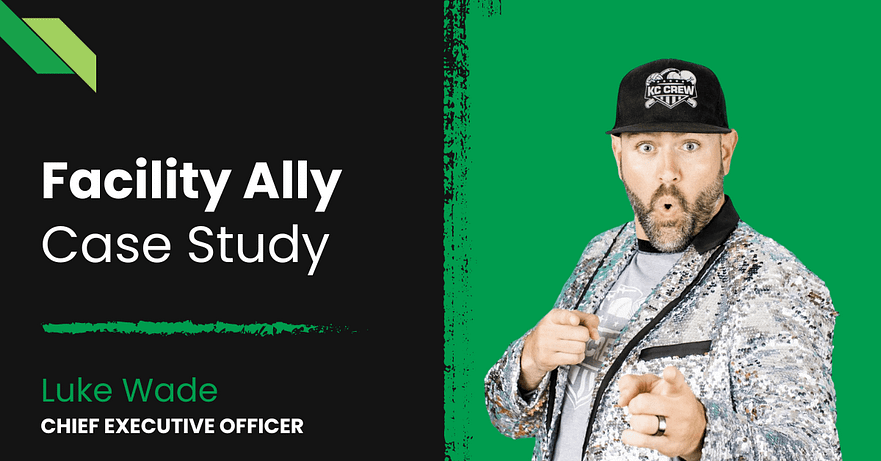15 iOS Developer Interview Questions That Actually Enable App Store Success
You’re asking iOS developers the wrong questions.
While you test their knowledge of delegate patterns and memory management, successful companies are hiring developers who understand what makes users actually download and keep using apps.
The difference shows up in App Store ratings, user retention, and ultimately, revenue.
The iOS App That Had Everything—Except Users Who Liked It
Six months ago, we helped launch an iOS app that was supposed to transform our client’s business. We’d spent a year building it and invested heavily in finding the ‘perfect’ iOS developer.
The developer we hired aced every technical question. Knew Swift inside and out. Could explain retain cycles and ARC in detail. Implemented perfect MVC architecture and wrote unit tests for everything.
The app launched with 2.1 stars.
Users complained it was “confusing,” “slow,” and “not intuitive.” App Store reviews were brutal: “Crashes when I get notifications,” “Takes forever to load my data,” “I can’t figure out how to do basic tasks.”
Our technically perfect developer had built an app that followed every iOS development best practice—and that real iPhone users absolutely hated.
The problem wasn’t the developer’s iOS knowledge. The problem was that we’d hired someone who understood frameworks but not users.
Why iOS Interviews Miss What Actually Matters
Here’s the disconnect: Most iOS developer interviews test platform knowledge. But iOS success isn’t about knowing the platform—it’s about creating experiences that iPhone users love.
Traditional iOS interview questions:
- Explain the iOS app lifecycle
- Compare strong vs. weak references
- Implement a custom UITableViewCell
- Describe the delegate pattern
What determines iOS app success:
- Do users find the app intuitive within their first 30 seconds?
- Does it feel fast and responsive compared to other iPhone apps?
- Can people accomplish their goals without getting frustrated?
- Does it follow iOS conventions that users expect?
The skills that help someone pass iOS interviews are completely different from the skills that create successful App Store apps.
The Hidden Economics of Bad iOS Hiring
Direct costs of hiring wrong:
- $35,000+ in recruitment and technical assessment overhead
- 12-16 weeks from job posting to productive iOS developer
- 6-8 additional weeks discovering they can’t build user-friendly apps
The real damage to your business:
- App Store ratings below 4.0 kill organic discovery
- Poor user experience destroys word-of-mouth growth
- High uninstall rates waste every dollar spent on user acquisition
- Negative reviews compound over time and are nearly impossible to overcome
Opportunity cost:
- Competitors with better iOS experiences capture market share
- Feature development stalls while you fix fundamental usability problems
- Team morale suffers when the product gets bad reviews
I’ve seen companies spend millions on marketing apps that users immediately delete because the iOS developer understood code but not user experience.
What iOS Development Actually Requires in 2024
Successful iOS development isn’t about memorizing Apple’s documentation. It’s about understanding how iPhone users think and behave.
iOS users have specific expectations:
- Apps should respond instantly to touches
- Navigation should feel obvious without explanation
- The interface should work naturally with one thumb
- Everything should follow familiar iOS patterns
iOS users are unforgiving:
- They’ll uninstall within minutes if an app feels wrong
- They expect the same polish as apps from Apple, Google, and Facebook
- They compare every interaction to the best apps on their phone
- They leave reviews that influence thousands of other potential users
The iOS ecosystem is competitive:
- There are multiple high-quality alternatives for almost everything
- Users have no loyalty to apps that frustrate them
- App Store algorithms favor apps with high ratings and retention
- One bad update can destroy months of positive momentum
Great iOS developers understand these realities. They don’t just write iOS code—they craft experiences that iPhone users actually want to use.
15 iOS Interview Questions That Reveal Real Success Potential
User Experience and App Store Success
1. You launch an iOS app that gets technically positive reviews, but users describe it as ‘hard to use.’ How do you identify and fix the core usability issues?
What to look for: User research methodology, iOS usability testing approaches, understanding of iOS design patterns, and ability to translate feedback into actionable improvements.
2. Your iOS app has great functionality but a 3.2 star rating. Competing apps with fewer features have 4.8 stars. Analyze why this happens and describe your improvement strategy.
What to look for: App Store dynamics knowledge, user experience prioritization, and understanding that technical quality doesn’t equal user satisfaction.
3. Design an iOS onboarding flow for a complex productivity app that gets users to their first success within 60 seconds.
What to look for: Progressive disclosure understanding, iOS navigation patterns, user psychology awareness, and focus on user goals over feature demonstration.
Performance and Device Reality
4. Users complain your iOS app ‘feels slow’ compared to other apps on their phone, but your performance metrics look good. How do you diagnose and fix this perceived performance issue?
What to look for: Understanding of perceived vs. measured performance, iOS animation and transition knowledge, responsiveness optimization, and user expectation management.
5. Your iOS app works perfectly on the latest iPhone but feels sluggish on devices that are 2-3 years old. How do you optimize without degrading the premium experience?
What to look for: iOS device fragmentation awareness, performance profiling skills, adaptive interface strategies, and backwards compatibility thinking.
6. Explain how you’d implement a feature-rich camera interface that feels as smooth and intuitive as the built-in iOS camera app.
What to look for: iOS camera APIs knowledge, interface responsiveness understanding, user interaction patterns, and performance optimization under resource constraints.
Real-World Integration Challenges
7. Your iOS app needs to handle push notifications that trigger different actions based on app state, time of day, and user preferences. Design this system.
What to look for: iOS notification system knowledge, user experience consideration, state management, and personalization approaches.
8. Users want to share content from your iOS app to social media, messaging, and email. How do you implement sharing that feels natural within the iOS ecosystem?
What to look for: iOS sharing frameworks knowledge, user expectation understanding, integration with system features, and cross-app communication.
9. Design an iOS solution for syncing user data across multiple devices while handling conflicts and network interruptions gracefully.
What to look for: CloudKit or similar sync strategies, conflict resolution, offline capability, user data integrity.
Production and Debugging Reality
10. After an iOS update, your app’s crash rate jumps from 0.1% to 8%, but the crashes only happen on certain device models. Walk me through your investigation process.
What to look for: iOS crash analysis tools, device-specific debugging, systematic isolation techniques, and hotfix deployment strategies.
11. Users report that certain iOS app features ‘randomly stop working,’ but you can’t reproduce the issues. How do you debug intermittent problems in production?
What to look for: Remote debugging strategies, analytics implementation, user session recording, systematic issue tracking.
12. Your iOS app works perfectly during development but users report frequent freezing and battery drain. Describe your optimization approach.
What to look for: Background processing knowledge, power management APIs, memory optimization, and real-device testing importance.
App Store and Business Success
13. You need to implement A/B testing for iOS app features without negatively impacting user experience or App Store review guidelines. How do you approach this?
What to look for: Feature flag implementation, App Store guideline awareness, user experience preservation during testing, and data collection strategies.
14. Apple rejects your iOS app update for violating design guidelines you weren’t aware of. How do you handle this and prevent future rejections?
What to look for: App Store review process knowledge, guideline interpretation, communication with Apple, compliance strategies.
15. Your iOS app has strong daily usage but poor monthly retention. Users engage intensively for a few weeks then disappear. How do you investigate and improve this?
What to look for: User analytics interpretation, engagement pattern analysis, feature usage tracking, and retention improvement strategies.
How to Evaluate iOS Developer Responses
Strong answers demonstrate:
- User-first thinking: They consider iPhone user expectations and behaviors before technical implementation
- iOS ecosystem awareness: They understand App Store dynamics, device differences, and platform conventions
- Real-world experience: They reference specific tools, debugging approaches, and challenges they’ve encountered
- Business impact understanding: They connect technical decisions to user satisfaction and business outcomes
- Systematic problem-solving: They have methodical approaches to investigation and improvement
Red flags include:
- Pure technical focus: They discuss implementation without mentioning user experience
- Generic mobile answers: They don’t show iOS-specific knowledge or platform understanding
- Perfect world assumptions: They assume ideal conditions that don’t exist in production
- No App Store awareness: They don’t understand how iOS apps succeed or fail in the marketplace
- Tool ignorance: They can’t name specific iOS debugging, testing, or optimization tools
The iOS Questions That Predict Nothing
Stop wasting time with these traditional questions that don’t correlate with iOS success:
- “Explain the iOS view controller lifecycle”
- “Compare delegation vs. notification patterns”
- “Implement a singleton in Swift”
- “Describe memory management in iOS”
- “What’s the difference between frame and bounds?”
These test iOS knowledge, not iOS success ability.
Response Quality Examples
Question: How would you improve an iOS app with good functionality but poor App Store ratings?
- Strong response: “I’d start by reading every recent App Store review to identify specific user pain points. Then I’d look at user analytics to see where people get stuck or abandon tasks. I’d also do competitive analysis—what are 5-star apps in our category doing differently? I’d focus on the first-time user experience since that’s usually where ratings are lost. For quick wins, I’d fix any obvious crashes or performance issues, then work on making the most common user tasks more intuitive. I’d also implement better user feedback collection within the app so we can catch issues before they become bad reviews.”
- Weak response: “I’d fix any bugs and improve the UI design. Maybe add some animations to make it feel more polished.”
The strong answer shows systematic thinking about user experience and App Store dynamics. The weak answer focuses on surface-level improvements without understanding why users actually leave bad reviews.
Building iOS Interviews Around Your App’s Reality
Create questions specific to your iOS app category:
For social apps:
- How would you design iOS sharing features that feel natural and increase viral growth?
- Implement real-time messaging that works reliably across different network conditions.
For productivity apps:
- How would you make complex workflows feel simple on iPhone screens?
- Design iOS widgets that provide value without overwhelming users.
For media apps:
- Optimize video playback for different iOS devices while maintaining quality.
- Implement offline content that syncs seamlessly when connectivity returns.
What Great iOS Developers Actually Do
When you hire the right iOS developer, you get someone who:
- Thinks like an iPhone user first, developer second. They understand that technical elegance means nothing if users can’t figure out how to use the app.
- Builds for the App Store ecosystem. They know that success depends on ratings, reviews, and user retention—not just code quality.
- Debugs issues that only happen on real devices. They’ve dealt with the messiness of different iOS versions, device capabilities, and user behaviors.
- Optimizes for real-world conditions. They understand that users don’t all have the latest iPhone with perfect WiFi and an unlimited battery.
- Creates experiences that feel native to iOS. They don’t just port ideas from other platforms—they understand what iPhone users expect.
The iOS Hiring Shortcut
Here’s the reality: You could spend months perfecting your iOS interview process, or you could have experienced iOS developers working on your app immediately.
The choice depends on whether you want to become an expert at interviewing iOS developers, or whether you want to ship iOS apps that users love.
Traditional iOS hiring process:
- 12-16 weeks from job posting to productive iOS developer
- $40,000+ investment in recruiting, interviewing, and onboarding
- 50/50 chance they can build apps users actually want to use
- Months of discovering whether they understand iOS user experience
- Risk of hiring someone who writes perfect code that creates terrible apps
Full Scale’s iOS staff augmentation approach:
- 2 weeks from decision to experienced iOS developers working on your projects
- Developers have already proven on real iOS apps with real App Store success
- 95%+ retention rate because they solve actual user experience problems
- No interview overhead or hiring uncertainty
- Direct integration into your iOS development workflow
We’ve solved the challenging part: finding iOS developers who build apps that iPhone users love to use and keep on their phones.
Our iOS developers have shipped apps that maintain 4.5+ star ratings. They’ve optimized user onboarding flows that convert first-time users into active users. They’ve debugged device-specific issues across dozens of iOS versions and iPhone models. They understand that iOS development success means creating experiences that feel natural to iPhone users.
Work with developers who’ve already proven they can build iOS apps that succeed in the App Store.
No more framework trivia contests. No more hoping technical skills translate to user-focused development. Just experienced iOS developers ready to build apps that iPhone users actually love using.



